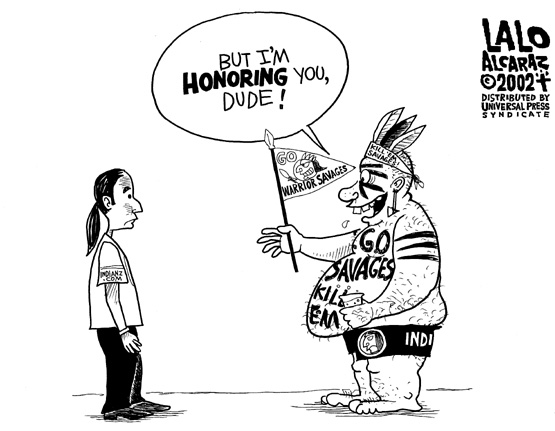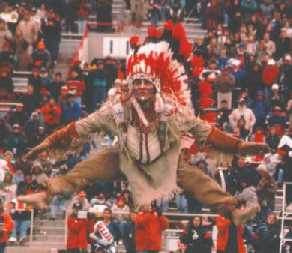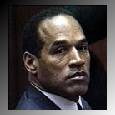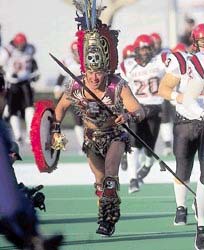 A response to Smashing People: The "Honor" of Being an Athlete:
A response to Smashing People: The "Honor" of Being an Athlete: A response to Smashing People: The "Honor" of Being an Athlete:
A response to Smashing People: The "Honor" of Being an Athlete:
A correspondent disputes my claim that being associated with athletes isn't an honor. She feels that athletes are noble and heroic figures—presumably because they work hard and strive to be the best in their field. I disagree. First, people in any field can work hard and strive to be the best in their field, so athletes aren't exceptional in that regard. Second, today's athletes are known for being selfish, greedy, and dishonest. Her view of athletes is sadly out of date.
As I told her:
It's not just me who doesn't respect professional athletes as paragons of virtue and honor. As is often the case, I'm reflecting what I've read and heard among the general public.
Take a look at the accompanying statistics. In Britain, a footballer is the fifth least respected profession, below lawyers and politicians. In the US, only 17% of the people polled think athletes have the most prestige.
Whatever you think about athletes, it doesn't reflect the current consensus. You're probably thinking of sports 30-40 years ago, when athletes were more honorable and less corrupt and mendacious. Times have changed drastically since then, as you'd know if you followed sports.
Anyway, thanks for forcing me to prove my point, which I did. These days, not many people respect athletes. Therefore, why would Indians want to be associated with them?
What people think of athletes
29.05.02
BBC NEWS
MPs top the list for least respected profession, say Today listenersToday programme listeners have voted for Members of Parliament as their least respected profession and doctors as their most respected profession.
The survey, carried out on the Today programme's website over the course of a week, attracted more than 12,000 votes.
Voters were invited to list their three most and least respected professions out of a list of nearly 100 professions.
A Member of Parliament was voted as the least respected profession followed by estate agent, government minister and lawyer respectively. Journalist was the fifth least respected profession in the top ten followed by footballer.
Today listeners picked doctor as the most respected profession closely followed by nurse, teacher, fireman and paramedic.
The results of the survey will be discussed during the Today programme on Wednesday 29 May.
Notes to Editors
The top ten most respected professions, listed in order, were -- doctor; nurse; teacher; fireman; paramedic; Army/Navy/RAF; scientist; ambulance driver; police officer; care assistant.
The top ten least respected professions, listed in order, were -- MP; estate agent; government minister; lawyer; journalist; footballer; advertising executive; car dealer; company director; accountant.
Listeners were invited to vote for their three most and least respected professions and points were allocated accordingly.
Any use of this material must include a credit for the BBC Today programme.

HARRIS POLL -- November 2003
by Humphrey Taylor
Who Do We Respect?
Poll shows little correlation between money and prestige
Americans see scientists, firemen, doctors, teachers and nurses as the professions and occupations which have the most prestige.
In fact, only three occupations are perceived to have "very great" prestige by more than half of all adults: scientists (57 percent), firemen (55 percent) and doctors (52 percent). They are followed by four professions perceived to have "very great" prestige: teachers (49 percent), nurses (47 percent), military officers (46 percent) and police officers (42 percent).
The lowest ratings go to real estate agents (six percent), stockbrokers (eight percent), actors (13 percent), bankers (14 percent), accountants (15 percent) and union leaders (15 percent).
These are some of the results of the annual Harris Poll measuring public perceptions of 22 professions and occupations.
There is not much of a correlation between making money and having high prestige. Firemen, teachers, nurses and police officers all score very well on prestige but are not particularly well compensated. At the other end of the spectrum, real estate agents, stockbrokers, actors, bankers and accountants can often make substantial sums of money, but have little prestige.
It is also clear that prestige does not mean celebrity. Most celebrities are probably actors, entertainers or athletes; and all of these are in the bottom half of the list in terms of prestige.
To judge from these data, it seems that prestige is strongly associated with respect. Professions with high prestige are those that are widely seen to do great work that benefits society and the people they serve.
Harris Interactive has been asking about the prestige of different professions and occupations since 1977. Over the 26 years since then there have been some quite substantial changes:
Those who see teachers as having "very great" prestige have risen 20 points from 29 percent to 49 percent.
Those who think lawyers have "very great" prestige have fallen 19 points, from 36 percent to 17 percent.
Scientists have fallen nine points from 66 percent to 57 percent.
Doctors have also fallen nine points from 61 percent to 52 percent.
Athletes have also fallen nine points from 26 percent to 17 percent.
With the exception of teachers, no occupation or profession on the list has improved its ratings since 1977.

September 11, 2000
News Analysis
What's Your Job's "PQ"?
Doctors rule, accountants don't: The "prestige quotients of 17 professions get ranked in a new Harris poll
Teachers have made the most progress since 1977, when the poll was first conducted. Today, 53% of those polled say educators have prestigious jobs, up from 29% in 1977. Surprisingly, members of Congress now rank up there with military officers in terms of stature (Nos. 7 and 5, respectively). Why are Americans feeling so warmly toward politicians, admirals, and generals? "The country is doing extraordinary well," explains Humphrey Taylor, Harris chairman.
POLL CLIMBERS. Other professions were left to count losses. Lawyers "have just taken an incredible beating," Taylor says. But that occupation still has more stature than those of businesspeople, professional athletes, entertainers, union leaders, and (ugh) journalists.
To summarize the data in this Harris Poll (September 2000): Only 21% say athletes have great prestige; 42% say they have some prestige. Presumably, 58% think they have little or no prestige. That puts athletes between lawyers and entertainers on the bottom half of the scale.
There you have it. Would Indians feel honored if politicians or lawyers identified themselves as Indians and dressed up in feathers and buckskins? How about telemarketers or used car salesmen? No? Then why should they feel honored when sports teams mascots do the same thing?
The debate continues....
My correspondent continued to dispute the point. What about all the athletes besides football players? she asked. What about the noble Olympians? And: Would Indians be happy if they were associated only with winning teams? Do athletes lose their honor when teams lose?
My response:
Football is the no. 1 sport in America. On the college and high school levels, it's even more dominant. It exemplifies sports in America.
But on the professional level, baseball and basketball have as many problems as football. On the college level, basketball has as many problems. Unlike most Americans, you're glorifying athletes based on their achievements of the (distant) past. These days, there are scandals, crime, drug use, greed, and corruption at every level.
To use your "noble" example, the Olympics: Athletes have been stripped of medals for using banned drugs. The judging for ice skating was so unfair they had to change the system. The organizers of the last Winter Olympics were accused of bribery. Etc.
As for winning and losing, the real issue is that every team has the potential to be losers. It's not as if every athlete is a winner, a victor, or a champion. Most athletes will be losers most of the time, since there's usually only one winner.

You could say athletes are people who try hard to overcome obstacles whether they win or not. But everyone in the world does that, so...? In the world of scientists or poets or plumbers, everyone has a potential path to success. They can all succeed without inflicting losses on others. In sports, in contrast, the majority of participants will be losers, not winners. Why would Indians want to be associated with that?
Why would they want to be associated with violence, physical exertion, or competitiveness, for that matter? These are three-dimensional people who prize their spirituality, artistry, compassion, and humility. The go-for-the-kill, winning-is-everything, nice-guys-finish-last mentality of sports is the antithesis of that.
If I wanted to create the cultural image for myself, I wouldn't choose an athlete, a soldier, or a warrior. Because that's not who I am. I'm not "honored" by being portrayed as something I'm not any more than a human is honored by having a dog as a namesake.
Related links
Team names and mascots
|
. . . |

|
All material © copyright its original owners, except where noted.
Original text and pictures © copyright 2007 by Robert Schmidt.
Copyrighted material is posted under the Fair Use provision of the Copyright Act,
which allows copying for nonprofit educational uses including criticism and commentary.
Comments sent to the publisher become the property of Blue Corn Comics
and may be used in other postings without permission.